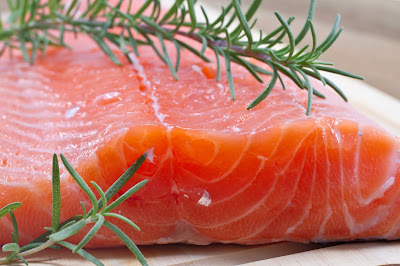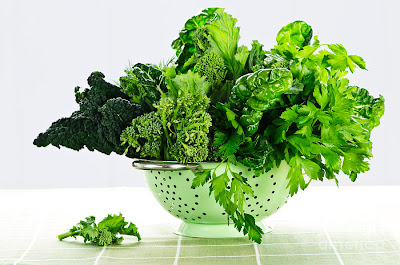Just about everyone dreams of having that golden bronze glow, the light kiss from the summer sun. But in recent years, there have been more and more concerns about the effects of sun on the largest organ of the body, the skin. Aside from looking dry and leathery when we’re old, skin cancer is a verifiable danger. One in five Americans will develop skin cancer within their lifetime and while some skin cancers are more easily treatable, some types like melanoma can be deadly.
Even those of us who are naturally darker skinned could still be at risk. It turns out that a healthy diet rich in particular foods might just provide some helpful options beyond lathering chemical-laden sunscreen on your body. It seems the body’s ability to protect against the sun is actually part of a larger process which can be improved by eating healthy foods. Our mothers weren’t joking when they told us to eat our fruits and vegetables.
Of course, it’s still advisable to use some sunscreen according to body type and need. It’s an even better idea to wear a large hat and clothing that covers the most burn-prone areas of the body. Eating three carrots and then taking an all day boating excursion won’t provide the necessary protection. But if we want to help prevent cancer and be healthier in other ways as well, these foods might just do the trick.
10. Dark Chocolate
Dark chocolate is high in flavonoids, a type of antioxidant found in plants that’s also been suggested by researchers to be beneficial in preventing heart attacks. Two for one and it’s so tasty too! In a study done at a University in Dusseldorf, some participants drank hot chocolate that was high in flavonoids while the others did not. Both groups were exposed to the same amount of UV light. The group who had drank the flavonoid rich beverage not only had less reddening of the skin but it was also smoother and moister. So feel free to stock up on nature’s melt-in-your-mouth deliciousness. Just pay attention to the sugar and milk content. Remember, the higher the percentage of cocoa, the greater number of flavonoids will be present to knock out those free radicals before they can do any damage. For the most beneficial purposes, it should be at least 60% cocoa or higher.
9. Carrots and Sweet Potatoes
Beta carotene is that red-orange pigment found in many fruits and vegetables including carrots and sweet potatoes. Beta carotene has been proven to reduce risk of sunburn. Like dark chocolate, carrots contain flavonoids and also Vitamin A which helps protect your eyes as well. Another study done in Germany suggests that broccoli and dry apricots are also high in beta carotene and that eating these foods regularly “protect the skin significantly against sunburn”.
8. Tomatoes, Watermelon and Papaya
Tomatoes, watermelon and papaya have something in common. They all contain a substance called Lycopene which is an all star player. Not only does it protect against many types of cancers but it might also reduce your risk of heart disease. And it’s been used to fight HPV, cataracts and asthma. In a study done in the UK, tomato paste was specifically studied to find out its effects on the skin. The results of the study found that the Lycopene in the tomato paste does indeed protect against both short and long term affects of the sun. Some other foods high in this source are pink grapefruit, guava, persimmons, liver pate, chili powder, red cabbage and dried parsley and basil. So add some fresh tomatoes, parsley and basil to that pasta you just cooked. Or chomp down on juicy summer watermelon knowing it’s helping more than just your taste buds.
7. Green Tea
Green tea has this compound called epigallocatechin gallate. Say that five times fast. Or you could just go with the abbreviation EGCG. This naturally occurring chemical has a lot of great benefits such as weight loss, heart health and protecting against UV radiation. It’s also been shown to resist growth of other types of cancer cells plus possibly preventing Alzheimer’s disease. And to add to the ever expanding list of good stuff, green tea can also keep the body from manufacturing histamine which means it could stop or minimize your allergic reactions. Just be advised, if you’re sensitive to caffeine you might want to limit your intake to one cup per day. While green tea contains less caffeine than coffee or black tea, it still has a significant amount.
6. Wild Salmon
Wild salmon is high in something known as omega-3 fish oils whose benefits are extensive for the skin in general. In a study done at the University of Manchester, researchers found that these types of oils made skin less likely to feel bad affects from sunlight and that additionally they put a damper on suppression of the immune system caused by sunlight. In other words, if any bad sun rays do break through, your body is more able to fight them. Wild salmon also contains an antioxidant that goes by the long-winded name astaxanthin which is apparently a large amount (like 1000) times more effective than vitamin E. Some other sources of Omega 3’s include sardines, mackerel, flaxseeds and walnuts.
5. Almonds
Almonds contain large amounts of Vitamin E which has been proven to be a determined fighter of UV rays. Like these other multi-taskers, vitamin E is also good for the heart and protects against eye disorders like age related macular degeneration. So go ahead and snack on these healthy nuts. And if you don’t like almonds, there are plenty of other options high in vitamin E including papaya, sunflower seeds, peanuts, peanut butter, swiss chard, spinach, mustard greens, turnip greens, collard greens, bell peppers, cayenne pepper and asparagus.
4. Strawberries, Oranges, Kiwis
Strawberries, oranges, kiwis and other foods high in vitamin C not only help the body make collagen (a protein that’s necessary in skin and bone healing and skin elasticity) but they protect against other diseases as well. The humble vitamin C is a badass disease vanquisher that gives the common cold, heart disease, asthma, osteoarthritis, high blood pressure, age related macular degeneration and many forms of cancer including skin cancer a run for its money. The list of fruits and vegetables containing this vitamin is lengthy but some of the top contenders are cantaloupe, citrus fruits, kiwi, mango, papaya, pineapple, berries, watermelon, broccoli, peppers, cabbage, spinach, tomatoes and potatoes.
3. Dark Green Leafy Vegetables
Besides vitamin E, many dark green leafy vegetables contain carotenoids such as lutein, zeaxanthin and flavonoids. Studies of carotenoids have shown that they can suppress sunburn, especially when combined with vitamin E. Foods high in lutein include kale, spinach, collard greens, squashes, pumpkin, broccoli, Brussels sprouts and sweet corn. Additionally, chlorophyll (the thing that makes plants green) binds with carcinogens before they enter the GI tract giving the little suckers no place to set up housekeeping. Some foods full of chlorophyll are spinach, parsley, watercress, arugula and green beans.
2. Turmeric or Curcumin
Turmeric/Curcumin is probably known more widely in the continent of Asia, particularly India, but more of us should be using it to flavor our favorite dishes. Historically, it’s been used to treat everything from parasitic worms to leprosy. While the research isn’t completely conclusive, some studies have shown that this bright yellow spice has the ability to kill skin cancer cells and other types of cancer cells while preventing them from growing in the first place. According to researchers at UCLA, it works so fast that it starts killing the cancer cells while they’re still in your saliva.
1. Coffee
Ah, the familiar stuff that jumpstarts your morning. A recent study showed that coffee acts as a safeguard against developing basal cell carcinoma (a type of skin cancer). Strangely enough, there was a difference in this study between men and women as the reduced risk of skin cancer for women was 21% while men came in at less than half of that at just 10%. Decaffeinated coffee seemed to have no effect at all in prevention but it’s unclear whether this is due to lack of caffeine or lack of something else that’s taken out during the decaffeinating process. While this might make us feel better about our daily cup or two of joe, coffee in larger doses can cause fast heartbeat, heart palpitations and upset stomach so it’s somewhat doubtful if the benefits outweigh the risk.











0 comments:
Post a Comment